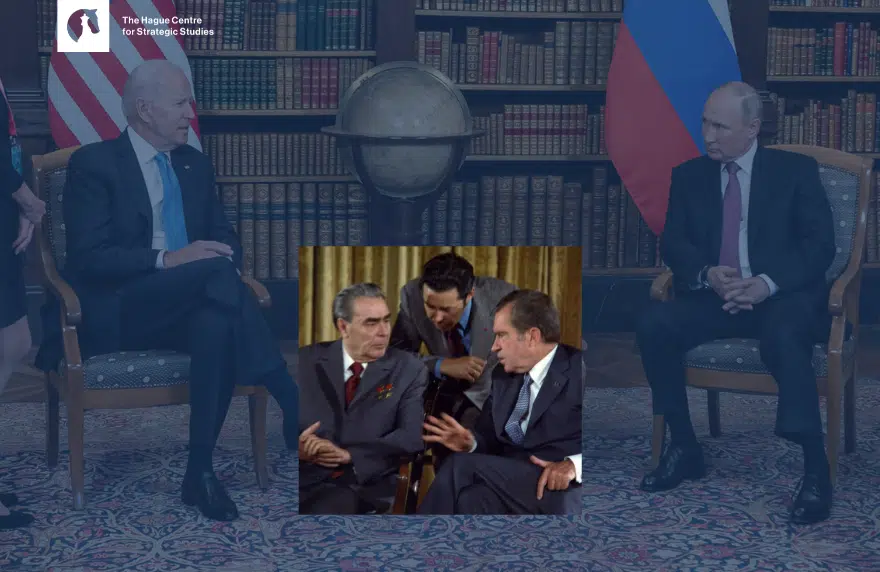Research
Given the increasingly tense posturing of world powers like the U.S., Russia, and China, as well as political volatility across the globe, deterrence has once again become a popular feature of many governments’ strategies. However, the old framework of deterrence that was developed during the Cold War has become outdated in an age of more and more complex international relations. Therefore, new approaches are needed for effective security policies.
To that end, this report argues that rather than framing the strategy of negative influence as deterrence, it is more useful to reconceptualize it as dissuasion, which offers a much more sophisticated perspective from which to consider new tactics. Thus, after surveying historical and current understandings of deterrence, this report offers a new framework of deterrence strategies, better described as compliance-seeking efforts, that includes both dissuasive and persuasive methods.
The report’s main finding is that while deterrence is a popular topic among security experts, their approach to it is growing increasingly obsolete. The traditional deterrent of the nuclear age, fear, is no longer the most effective way to influence behavior. The use of fear and punishment or even just discouragement is not the only way. Thinking through what can be done to dissuade other actors from pursuing undesired courses of action through positive incentives may deserve more attention that it currently receives.
Above all, what is needed is a new dialogue among the security community that focuses on reconceptualizing deterrence for the current global situation, a dialogue that must include input from many avenues such as psychologists, educators, and criminologists to offer varied insights for a more creative, flexible, and better designed approach that produces optimal strategic results in today’s fraught geopolitical climate.
Download the report by clicking on the PDF button on the top of this page.
The authors gratefully acknowledge the feedback and inputs from Dr. Paul Davis from the RAND Corporation and from Dr. Ben Taylor from Defence Research and Development Canada. They also thank Frank Bekkers from HCSS for his final editing touches.
Disclaimer
The research for and production of this report has been conducted within the PROGRESS research framework agreement. Responsibility for the contents and for the opinions expressed, rests solely with the authors and does not constitute, nor should it be construed as, an endorsement by the Netherlands Ministries of Foreign Affairs and Defense.





